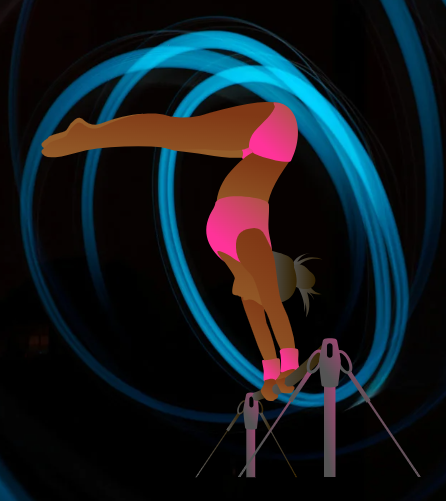Sports News ~ April 2025

BGS Sports Prefects 2025
This month at BGS has been filled with exciting celebrations and meaningful reflections, as highlighted in the articles written by the Sports Prefect on Neurodiversity Week, Culture Week, and International Women’s Day. The articles showcased the school's commitment to inclusivity, diversity, and empowerment, capturing the vibrant spirit of each event. Neurodiversity Week emphasised the importance of understanding and embracing different ways of thinking, fostering a more supportive school environment. Culture Week brought the community together through food and traditions, celebrating the rich diversity within BGS. International Women’s Day honoured the achievements of women, inspiring students to advocate for equality and recognise the impact of female role models. These events and the Sports Prefect’s insightful articles reflect the positive and progressive initiatives that have made this month a truly remarkable one at BGS.
Neurodiversity within sport
Neurodiversity Week was from the 17th to 23rd March 2025. It is a very important week within our school community as we have several members who are neurodivergent. Several sports athletes are neurodivergent, but they don’t allow that to hold them back from enjoying their sport.
One of the most notable neurodivergent athletes is Michael Phelps, who is often credited with being the greatest Olympian to date, with 23 gold medals across his illustrious career. He was diagnosed with ADHD as a child and when it came to being in a classroom, Phelps was often seen to be struggling to pay attention, just like many other children with the same diagnosis. However, when it came to swimming, Phelps's energy and hyperfocus worked to his advantage. He was able to internalise the practices and competition routine in a meditative state that allowed him to obtain his God-like presence in the water. Phelps has advocated for his accomplishments to lessen the stigma against neurodiversity in sports. He, above all, demonstrates that neurodiversity does not limit an individual and can in fact help them excel within the sporting world.
 Another world-class athlete who is neurodiverse is the gymnast Simone Biles. She was also diagnosed with Attention Deficit Hyperactivity Disorder (ADHD) as a child. Many people would think that this would negatively impact her and her ability to perform. However, Biles uses it to her advantage, making the challenges into her weapon to become such a successful individual. The struggles that ADHD entails can be heightened in sports such as gymnastics, which demand precise movements and a significant amount of concentration. She struggled initially with her training. However, Biles and her support system used her ADHD and used the traits to help her become a stronger athlete. She is the most decorated gymnast in history, with 11 Olympic medals and 30 World Championship medals at only the age of 28 years.
Another world-class athlete who is neurodiverse is the gymnast Simone Biles. She was also diagnosed with Attention Deficit Hyperactivity Disorder (ADHD) as a child. Many people would think that this would negatively impact her and her ability to perform. However, Biles uses it to her advantage, making the challenges into her weapon to become such a successful individual. The struggles that ADHD entails can be heightened in sports such as gymnastics, which demand precise movements and a significant amount of concentration. She struggled initially with her training. However, Biles and her support system used her ADHD and used the traits to help her become a stronger athlete. She is the most decorated gymnast in history, with 11 Olympic medals and 30 World Championship medals at only the age of 28 years.
Tolani and Henry
Culture in Sport
Football is a deeply rooted part of culture in countries like Brazil, Argentina, Spain, England and Germany. It’s more than just a game; it’s tied to national identity as it is one of the most viewed and played worldwide.
MMA is a huge part of countries such as Brazil as well as the USA. USA: The UFC, founded in 1993, transformed MMA into a mainstream sport, blending Brazilian Jiu-Jitsu (BJJ), wrestling, and striking. The American culture of entertainment and spectacle helped MMA grow through promotions and trash talk.
Basketball is one of the fastest-growing sports worldwide, with different countries shaping its style, fan culture, and significance. From streetball in the U.S. to the disciplined, team-oriented play in Europe and Asia, basketball reflects the values and traditions of each nation where it thrives. It was invented in 1891 by a man named Dr James Naismith and streetball has become a huge part of culture. Urban areas, especially in cities like New York, Chicago, and Los Angeles, have a strong streetball tradition, with legendary playground courts like Rucker Park shaping the game.
Cricket is a major part of many cultures across the world, especially in Australia, the UK and South Asia. The sport's cultural significance extends to the way it is celebrated, from local street games, to major test matches at grand stadiums in front of 90,000 people. Cricket unites people and combines and shapes local identities.
Rugby has a unique culture, structured around respect and fierce competition. Currently, World Rugby is represented by 133 members, each of which represents a national rugby union. Across these countries, there are 50 million fans, with 8 million of them also playing rugby. Rugby values qualities like fair play, resilience and teamwork, creating a passionate global following.
Tennis has lots of cultural heritage and traditions. The sport is known for its emphasis on etiquette and respect, promoting key values. Tennis players represent their countries with pride while competing in major tournaments. At the minute, there are around 3600 professional tennis players, which represents 113 different countries. Also, tournaments like Wimbledon are rich in traditions, such as strawberries and cream and wearing white attire.
Marvel and Jack Perkins
Influential Women in Sport
Roberta “Bobbi” Gibbs
Roberta “Bobbi” Gibbs, born November 2nd 1942, was the first woman to ever run the entire Boston Marathon. If, however, you were to search for the first ever woman to run the Boston Marathon, the name Kathrine Switzer would appear. This is because Gibbs was unable to register for the marathon, simply because she was a woman: "Women are not physiologically capable of running a marathon." Those were the exact words that Gibbs received in response to her official entry to run the 1966 Boston Marathon. However, Gibbs refused to give up - she was going to run that marathon. She began quietly training for the marathon in 1964, with little to no knowledge of what it took to run a marathon. And so, in 1966, she entered the Boston Marathon disguised as a man. Bobbi expected the surrounding men to throw her out of the race when she took off her hood, but they said they would not let anyone remove her. As a result, Bobbi Gibbs became the first woman to run the Boston Marathon. This paved the way for Switzer, who officially applied and ran the marathon in 1967. The bravery demonstrated by Bobbi Gibbs is representative of women across the world who are taking steps towards gender equality.
Isabelle

